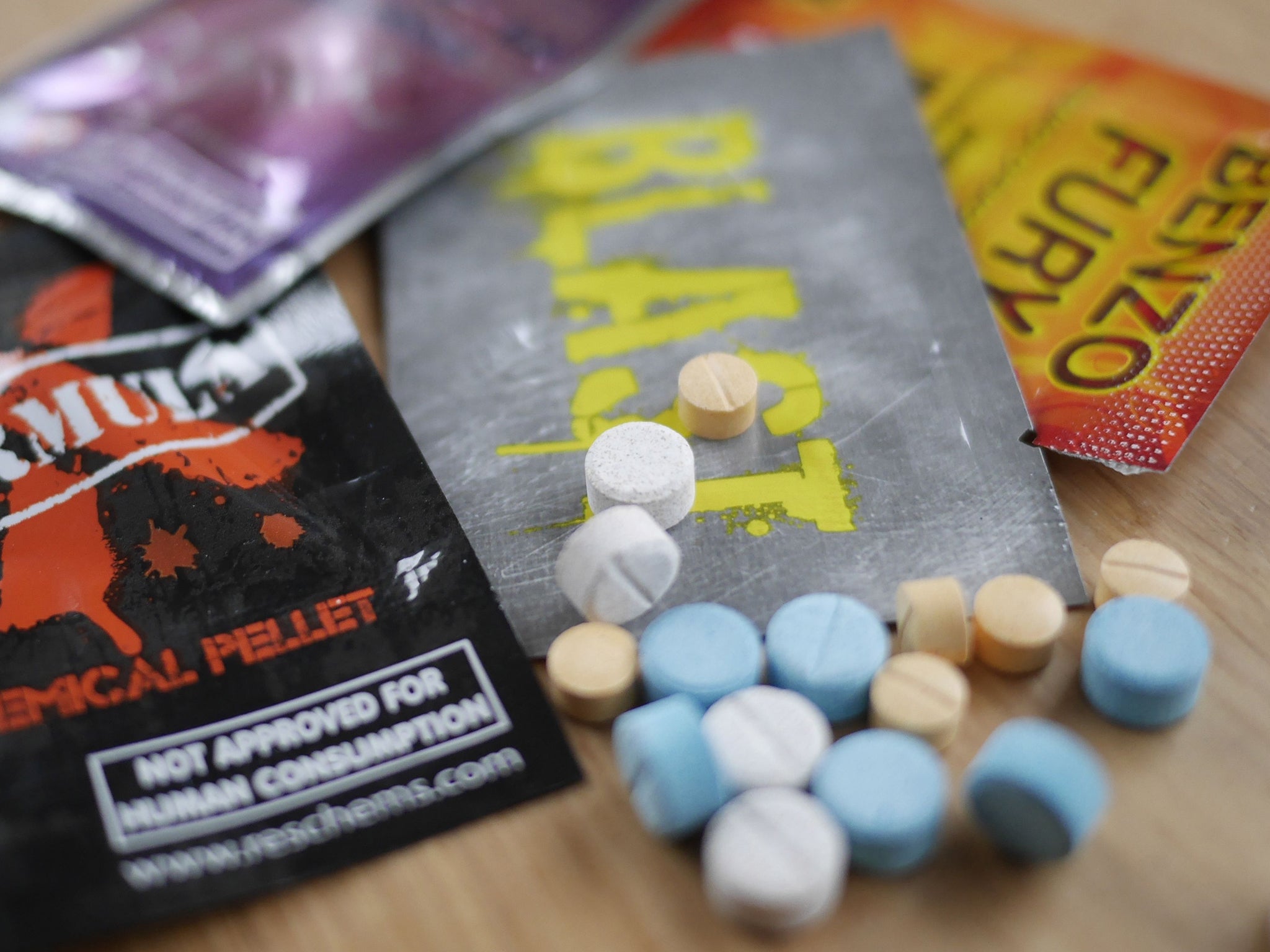Maybe social media really is the best way to fight this futile war on drugs
From Manchester to Florida, these days there's only one way to get our attention about the dangers of substance abuse – whatever privacy issues it raises


Your support helps us to tell the story
From reproductive rights to climate change to Big Tech, The Independent is on the ground when the story is developing. Whether it's investigating the financials of Elon Musk's pro-Trump PAC or producing our latest documentary, 'The A Word', which shines a light on the American women fighting for reproductive rights, we know how important it is to parse out the facts from the messaging.
At such a critical moment in US history, we need reporters on the ground. Your donation allows us to keep sending journalists to speak to both sides of the story.
The Independent is trusted by Americans across the entire political spectrum. And unlike many other quality news outlets, we choose not to lock Americans out of our reporting and analysis with paywalls. We believe quality journalism should be available to everyone, paid for by those who can afford it.
Your support makes all the difference.Two very different stories of the modern, social media-led war on drugs begin the week: one about the Class B drug ‘Spice’ in Greater Manchester, one about heroin in Lake County, Florida.
Both troubling and oddly dystopian; both equally open for criticism.
This weekend in Florida, Sheriff Peyton Grinnell posted a YouTube video intending to scare the bejeesus out of local heroin dealers. Flanked by a group of balaclava and flak jacket clad heavies, a skin-headed, utterly livid Grinnell stands behind a podium delivering a warning to sleep with one eye open to those people behind numerous local overdoses.
Grinnell is not wrong, in 2017, to believe YouTube is the way to reach millions of hearts and minds, rather than calling a local news station for a spot on the 6pm bulletin or touring schools to preach the timeworn tale that “users are losers”. Law enforcers have trod that path impotently for decades; who can blame them for embracing social media.
Still, the Sheriff’s YouTube performance is troubling, bordering on hysterical. His tactics, he’d hate me to say, I’m sure, seem influenced by jihadi propaganda: the anonymous, hovering brute force lurking by pontificating spokesperson; an inference that a far greater evil is at work amongst these people stridently aiming to create nirvana.
Grinnell hoped to embrace the future, and in doing so he created footage entirely in keeping with the futuristic baddies of the 1980s, as first seen in straight-to-VHS, Jean-Claude Van Damme saves the world again movies.
The biggest bloodbath so far has been the YouTube comments section underneath his missive, accusing Grinnell of being “f*** Florida Isis dickwad c****” and about him “beating off in the station bathroom to Mr Robot”. Other comments were less constructive.
In the social media era, young people can send flagrant abuse publicly to law-enforcers without any repercussion – unlike in, say, 1977 when merely rolling one’s eyes at a constable would result with him in your mother’s sitting room for two hours solidly threatening you with borstal.
At least, this was de rigeur back then in northwest of England, where it has been proven this weekend that today’s local law enforcers also have much bigger fish to fry in 2017.
Footage filmed by the Manchester Evening News, and released this weekend to social media, shows an unsettling vision of a city centre flooded by users of Spice. The effects of Spice are distressing, at least to the unaccustomed eyed – but the people of Manchester have grown all too accustomed of late. So while the MEN may find itself criticised over issues of consent for releasing video of users stumbling about like zombies or lying, roaring, in catatonic poses, this also feels very much like a city’s cry for help.
I feel rather grateful they filmed it in bite sized Facebook and Twitter nuggets, easy to share with others, for any small attempts I’ve made as a writer to address the subject have alerted me that there’s almost nothing one can mention about Spice without falling into Chris Morris “War on Cake” territory.
Spice: synthetic cannabis which turns users into staggering, hallucinating semi-monsters. Spice: you’ll end up covered in vomit and soiling oneself in a phonebox. Spice: other names ‘Black Mamba’, ‘Annihaliation’.
See. Unitentionally hilarious.
Spice: the drugs that’s flooded our prisons. In fact, some prisoners can’t get back into prison quick enough after finishing sentences to mule the stuff back in. (Not that it’s incredibly difficult, sources say, to schedule a drone delivery over the fence anyway.)
Although Spice was once legal, it is now reclassified as Class B, although one ex-prisoner I spoke to said that the producers of the drug are so far ahead of law-makers in terms of altering their product to find loopholes it already felt unfeasible that Spice could ever be truly stamped out through the law.
The War on Drugs has become murkier and increasingly multi-faceted. While I don’t, of course, hope for a future where we all take to the streets with iPhones to film the homeless, the addicted, the filthy and fallen, in the same spirit, I can’t blame Manchester Evening News for taking their situation to a global audience and saying “This is our truth”.
It is a fact that behind exciting talk of The Northern Powerhouse, The Guardian considering moving headquarters back to its spiritual home, Channel 4 potentially relocating to Salford’s MediaCityUK, or the growth in fine dining and luxury hotels, others in the northwest have not such rosy futures.
Personally, when I viewed the MEN Spice footage, my sympathies lay most with all the invisible minimum wage shop workers who arrive before dawn and lock up after dark and meet the destruction of this drug face on.
Using social media to fight back against the misery drugs create, here and in Florida, is not a perfect solution. But it has certainly got people’s attention.
Join our commenting forum
Join thought-provoking conversations, follow other Independent readers and see their replies
Comments